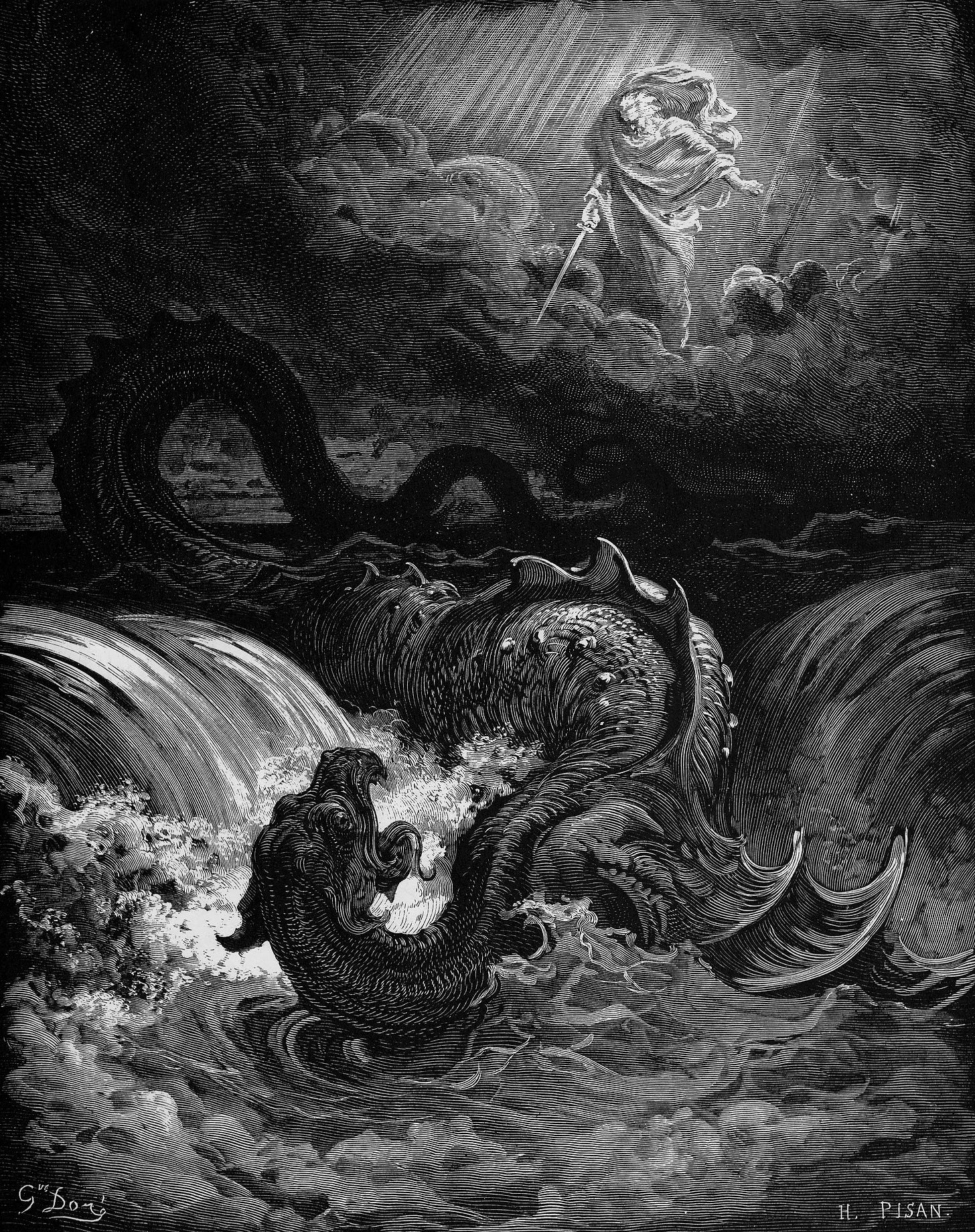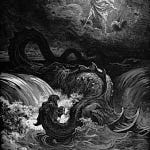
Is America supporting Ukraine’s fight against Russia, acting in our self-interest? Or should we stop funding the effort in Ukraine?
Philosophy
Thomas Hobbes’ Leviathan, published in 1651, presented his views on social contract theory. During this period, England experienced significant upheaval. The English Civil War raged, with factions fighting over monarchy power, religious discord, and social upheaval. The instability and violence ultimately led to the trial and execution of King Charles I in 1649.
In this context, Hobbes developed a philosophy based on a rather bleak view of human nature. He viewed humankind as competitive and posited individuals primarily act in their own self-interest. Hobbes asserted individuals make choices that they perceive maximize their advantage or benefit, even at the expense of others.
Hobbes outlined individuals live in constant fear of violence, leading to a life that is "solitary, poor, nasty, brutish, and short." This conceptual framework explained why he believed sovereigns were necessary—to impose order and prevent the war of all against all. In Hobbes’ view, individuals are driven by rational self-interest. They agree to form a social contract and establish a sovereign to escape this perpetual conflict and ensure their own survival.
Hobbes’ choice of title is fascinating. He named his views on the social contract theory Leviathan in reference to a biblical sea monster from Hebrew texts. In the Book of Job, written about 2000 BC, the Leviathan is a powerful creature that only God can subdue. In the Book of Psalms, the Leviathan waits for God to feed it.
Hobbes used the Leviathan to symbolize the absolutist state. To maintain peace and order, the state must have supreme power, like the Leviathan. This power was necessary to prevent the anarchy of human nature from leading society into disorder and violence. His metaphor emphasized his argument about the nature of human beings and the structure of society, advocating for a strong central authority to achieve a peaceful and stable social order.
Modern theorists apply Hobbesian principles to international relations.
In War and Change in World Politics, published in 1981, Robert Gilpin draws on Hobbesian realism. In contrast to Hobbes, who conceptualized individuals and their interests, Gilpin considered nations. Individuals join to develop coalitions, and these coalitions have interests. When the coalitions are nations, the nations create international partnerships to advance their interests. These international partnerships represent a Leviathan.
Therefore, from a Hobbesian perspective, nations are primarily concerned with their own survival and power. They act alone and with partner nations to create favorable conditions and gain and maintain freedom of action and influence. These nations form coalitions and international partnerships not out of altruism but as a strategic effort to enhance their own strength, stability, and interests.
In summary, to ensure security in a world of Hobbesian realism:
Nations must take independent action: Nations act autonomously to safeguard and promote their own interests.
Nations act through partnerships: Nations engage in alliances to bolster their strength and stability, enhancing their strategic position globally.
These principles apply to America funding Ukraine’s effort to defend itself against Russia’s invasion. By funding Ukraine, America acts both independently and through partnerships to enhance our own strength, stability, and interests.
America Acts Independently for Ukraine and the American People
By funding Ukraine’s effort to defend itself, America acts to enhance our own security and stability. America is compelled to act because Russia funds violent extremism against America. Supporting Ukraine directly reduces Russia’s capacity to sponsor this extremism, thereby increasing security for the American people.
Today, Russia and Russian groups sponsor violent extremism in Africa and the Middle East. Ambassador and Director of the Wilson Center Mark Green identified, “The sub-Saharan region has seen a significant rise in extremist violence, accounting for more than 40% of global terrorism-related deaths in 2022.” Twenty-one years ago, violent extremism was the cause of the most deadly attack on US soil in our history.
Svante Cornell, PhD, co-founder and Director of the Institute for Security and Development Policy, testified before the Committee on Foreign Affairs, US House of Representatives in 2017. He summed up Russia’s aims with regard to America:
Russia's main aim is to undermine U.S. leadership in the world, and when insurgents and terrorists contribute to this goal in one way or another, Russia has no problem with coordinating with them, supporting them, and, of course, manipulating them.
In response to these threats, the US strategically chooses to support Ukraine. This support reflects a broad commitment to stabilize international relations and secure our own domestic interests. We deter further Russian aggression to maintain regional stability, which is crucial for the security of the American homeland. Reducing Russia's capability to sponsor extremism strengthens the global order that discourages states from undermining each other's security.
Violent extremism threatens US security. Russia sponsors violent extremism. Therefore, Russia threatens US security. America must act on its own to counter Russia’s aims.
In Hobbesian terms, the absence of a world government results in global anarchy and compels states to ensure their own security. Russia's sponsorship of violent extremism is an attempt to exploit this anarchy, weaken its adversaries, and alter the balance of power in its favor to gain back the influence it lost when the Soviet Union dissolved.
US support for Ukraine deters further Russian aggression and maintains regional stability. This helps secure the American homeland by reducing Russia’s capability to sponsor extremism that could threaten our interests. It also strengthens a global order that discourages states from undermining each other’s security.
America Acts Through Partnerships to Protect the American People
No single nation can unilaterally maintain global stability.
International alliances serve as parallels to Hobbes's Leviathan. This modern-day Leviathan acts as a super-sovereign power that imposes order in the international system and prevents descent into chaos and violence. America acts with and supports our international partners to maintain the Leviathan that promotes global stability.
Hobbes viewed the Leviathan as an all-powerful sovereign that could impose order and prevent the natural state of war among humans. In modern international relations, no single nation is a global sovereign; coalitions such as NATO are collective Leviathans. These alliances aggregate the power of individual states to form coalitions that act to maintain peace and stability on a broad scale.
NATO, in particular, was established in the aftermath of World War II, primarily as a means of deterring Soviet aggression in Europe. Its role has evolved to include crisis management and cooperative security. This evolution shows how NATO imposes order and prevents conflict through a strategic balance of power.
In February, US Secretary of Defense Lloyd J. Austin III highlighted this international coalition has “committed more than $87 billion in security assistance to Ukraine since the start of Putin's war—including 15 U.S. allies that, as a percentage of GDP, contribute more to Ukraine's capability needs than the United States.”
Russia threatens partners in our international alliances. Russia conducts cyber attacks and disinformation campaigns against America and our NATO partners. Russia also poses physical threats to partner NATO nations, including issuing physical threats against border nation Finland, NATO’s newest member. Putin claims to threaten our NATO partners in order to “neutralize threats connected to the latest expansion of NATO.”
NATO and other international alliances act to impose order in the international system and prevent chaos and violence. America acts through these partnerships to serve our own interests and increase security and stability for Americans.
Our commitment to Ukraine, which is not a NATO member, is a commitment to our NATO and other European partners. By supporting Ukraine, we support the international system that our alliances influence.
Arguing that we shouldn’t support Ukraine because it isn’t a NATO member and its security has nothing to do with our security overlooks our commitment to our partners. Our NATO partners supported operations in Afghanistan for 18 years alongside America. Did our security in Afghanistan impact theirs? Likely not. But they honored their commitment to America, and we need to do the same. Further, if Ukraine were a NATO member, we would already be at war. Funding Ukraine’s efforts against Russia requires significantly less treasure in money and blood than military operations.
And…The US Constitution
Another question we should ask regarding our commitment to Ukraine is what the US Constitution says about security. From the Preamble:
We the People of the United States, in Order to…provide for the common defense
America exists as a nation to provide security for the American people, among other reasons. It’s literally part of the reason each group of people, organized as a state, agreed to form the Union of the United States.
Alexander Hamilton, writing Federalist Paper No. 23, explicitly justified the logic of the Constitution and outlined the purpose of the Union. Its primary goals included defending the member states, maintaining peace within the country and against external threats, regulating commerce with other nations and between states, and overseeing our interactions with other countries.
The Constitution specifically tasks elected representatives with providing for the common defense and overseeing interactions with other nations. This mandate can be linked directly to contemporary foreign policy decisions. We support Ukraine’s defense in order to deter Russian aggression, stabilize the region, reduce threats to European allies, and protect the American people.
The Constitution's dedication to common defense is a modern implementation of the Hobbesian principle for a strong authority to ensure security and peace. This authority maintains international order and prevents broad regional instability.
Hobbesian philosophy views human nature as a state of anarchy and violence. His Leviathan represents a powerful symbol of order and stability.
No single nation can unilaterally maintain global stability.
To gain and maintain security for the American people, America must act on its own and within international coalitions to create this Leviathan.
Russia sponsors violent extremism, which threatens the American people.
Russia attacks our international alliances, which threatens international order and the security of the American people.
We don’t support Ukraine at the expense of the American people. We support Ukraine to protect the American people.
Is America supporting Ukraine’s fight against Russia, acting in our self-interest?
These efforts are in our own self-interest to maintain global order and minimize violence.
May God bless the United States of America.
Postscript.
For those who would argue we should secure our own border first, here’s a link to a four-part series on US southern border security:















The Philosophy of American Funding for Ukraine